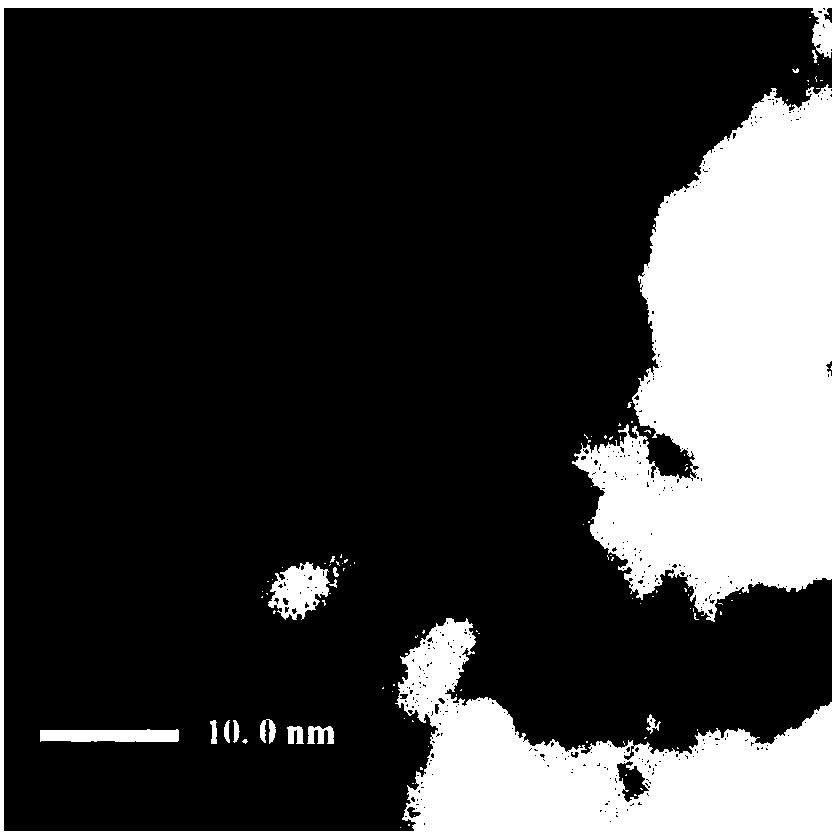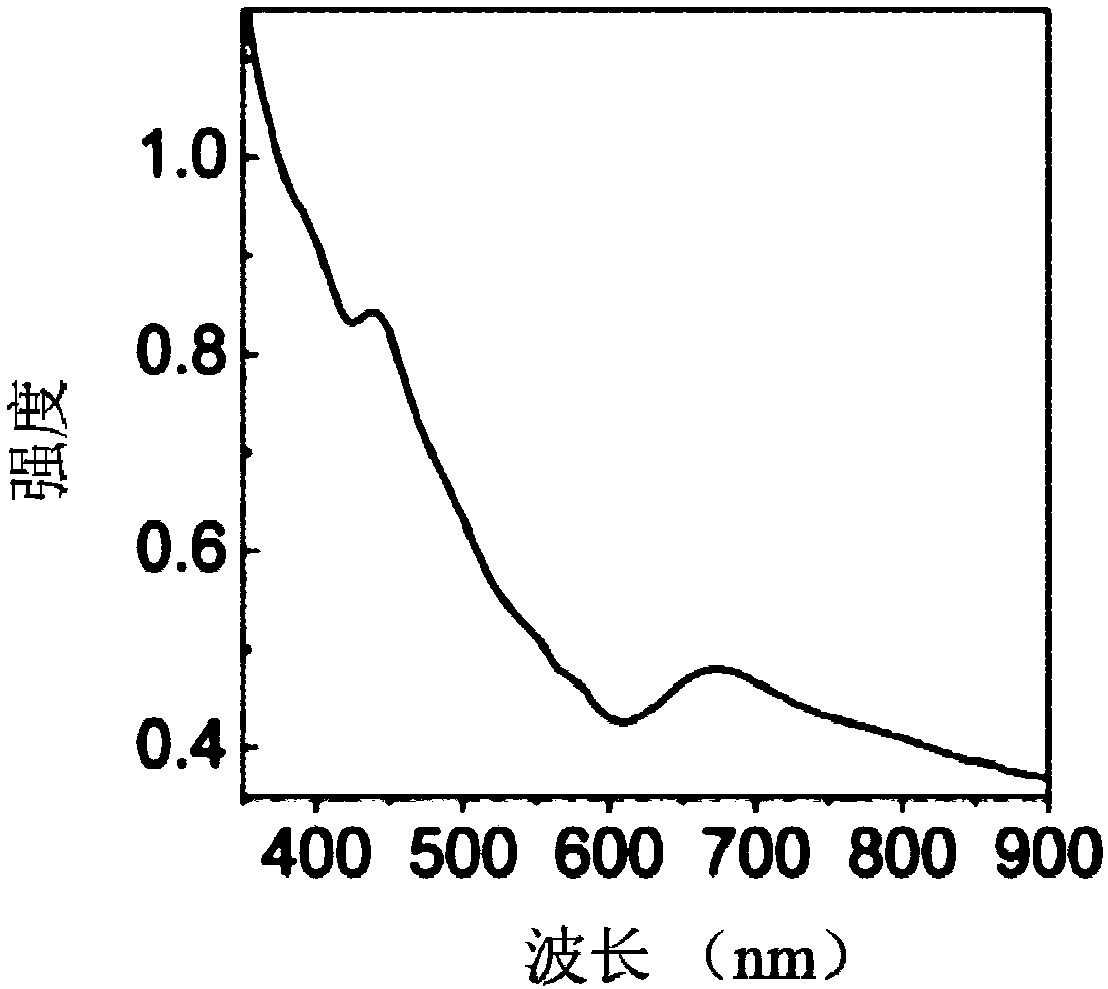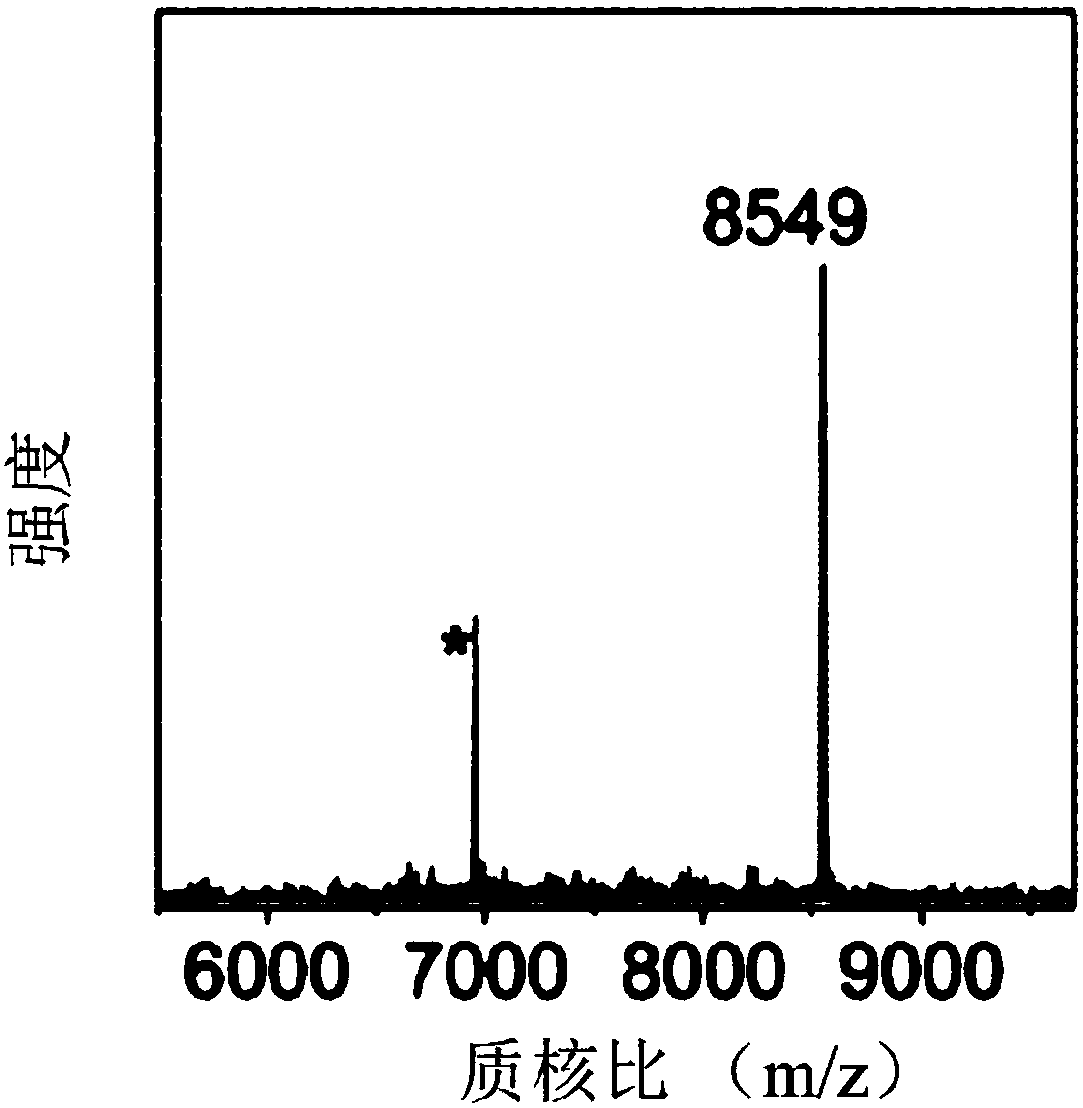Method for treating organic ligands on surfaces of gold clusters
A technology of organic ligands and atomic clusters, applied in the field of nanomaterials, can solve the problems of inapplicable excision, etc., and achieve the effect of improving catalytic activity, improving catalytic activity, and simple operation steps
- Summary
- Abstract
- Description
- Claims
- Application Information
AI Technical Summary
Problems solved by technology
Method used
Image
Examples
Embodiment 1
[0028] Example 1 Au 25 (SR) 18 Synthesis
[0029] Weigh 60 mg of HAuCl 4 4H 2 O was added to a 50mL three-necked flask, and 15mL THF was added, and the solution was golden yellow. Add TOAB 92 mg (TOAB: Au = 1.16 mol: 1 mol), and the solution gradually turns from golden yellow to orange red. After stirring for 30 min, add C 12 h 25 SH 177μL (C 12 h 25 SH: Au=5mol:1mol), when the color of the solution gradually becomes lighter to colorless, add NaBH 4 (4mL ice water) 55mg (NaBH 4 : Au=10mol:1mol). Stir overnight to stop the reaction. Wash the product with n-hexane and methanol, dissolve the precipitate with acetone, remove the insoluble matter, and obtain Au after drying 25 (SR) 18 .
[0030] Such as figure 1 The scanning transmission electron microscope image of the gold cluster prepared in Example 1, the size is about 1.5nm.
[0031] Such as figure 2 The ultraviolet-visible spectrum of the gold cluster prepared in Example 1 has a relatively strong absorption ...
Embodiment 2
[0033] Example 2 Au 25 (SR) 18 / CeO 2 Catalyst Synthesis
[0034] Dissolve 10 mg of Au in 10 mL of dichloromethane at room temperature 25 (C 12 h 25 S) 18 , added to CeO dispersed in 40 and mL dichloromethane 2 (2 g), stirred overnight and dried by centrifugation to obtain an untreated sample.
[0035] Such as Figure 4 , 5 , 6 are the Fourier transform infrared spectrum, X-ray photoelectron energy spectrum and Raman spectrum of the untreated sample respectively
Embodiment 3
[0036] Embodiment 3 sample heat treatment in reaction gas
[0037] 50mg Au 25 (SR) 18 / CeO 2 The catalyst is placed in a fixed bed reaction tube, and a gas mixture of 1.67CO / 3.33O is introduced 2 / He 12.5mL. Raise the temperature to 100°C, 120°C, 140°C, and 200°C for 1 hour respectively.
[0038] Such as Figure 4 The FTIR spectra of the samples treated at different temperatures are shown in the middle.
[0039] Such as Figure 7 The middle is the catalytic performance of CO oxidation of samples with different treatment temperatures.
PUM
 Login to View More
Login to View More Abstract
Description
Claims
Application Information
 Login to View More
Login to View More - R&D
- Intellectual Property
- Life Sciences
- Materials
- Tech Scout
- Unparalleled Data Quality
- Higher Quality Content
- 60% Fewer Hallucinations
Browse by: Latest US Patents, China's latest patents, Technical Efficacy Thesaurus, Application Domain, Technology Topic, Popular Technical Reports.
© 2025 PatSnap. All rights reserved.Legal|Privacy policy|Modern Slavery Act Transparency Statement|Sitemap|About US| Contact US: help@patsnap.com



